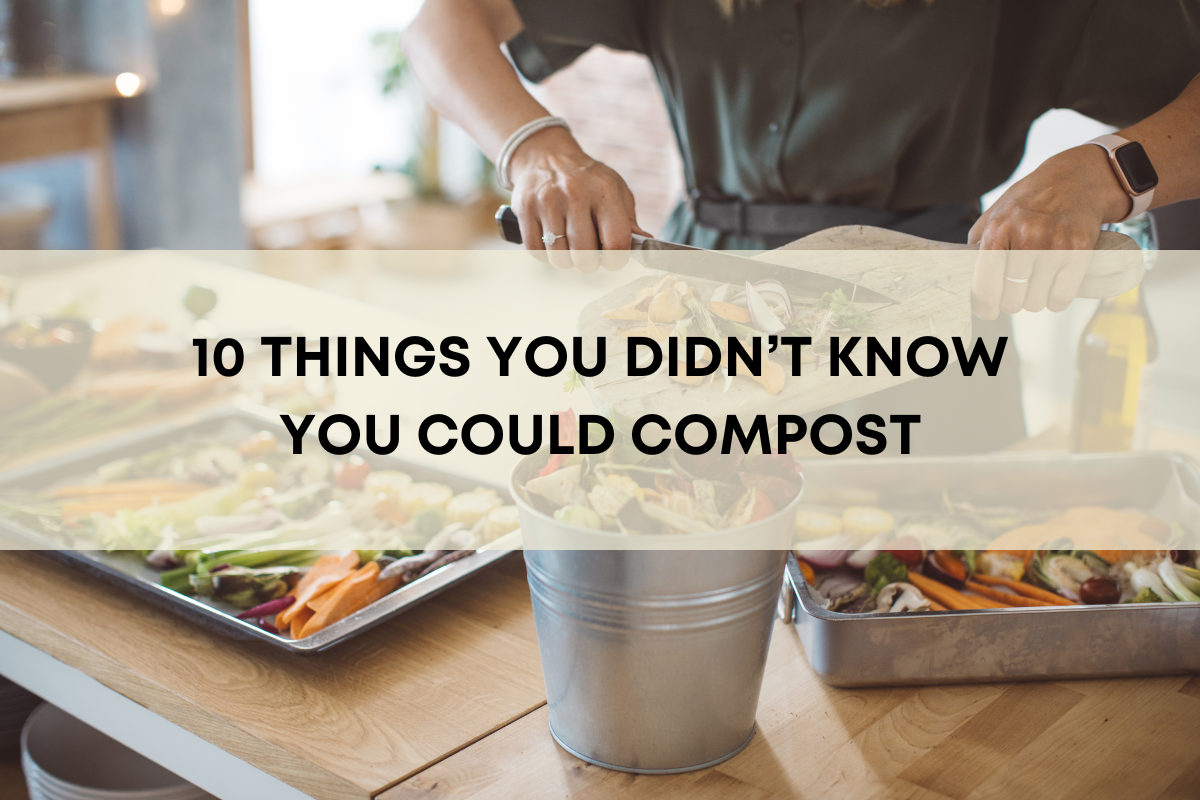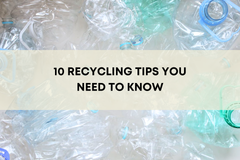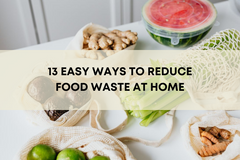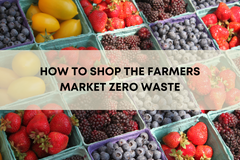10 Things You Didn't Know You Could Compost

Did you know that composting can significantly reduce the amount of waste that ends up in landfills? In fact, food waste makes up approximately 30-40% of the U.S. waste stream, much of which could easily be composted. By composting, you’re not only diverting waste from landfills, but you're also reducing methane emissions—a potent greenhouse gas—by helping organic materials break down in a way that nurtures the earth, rather than contributing to global warming.
Composting can also turn waste into nutrient-rich soil that enhances garden growth, reduces the need for chemical fertilizers, and helps retain moisture in the soil. Plus, it reduces your carbon footprint by cutting down on the need for waste transportation and landfills.
So, whether you're an expert composter or just getting started, we’re here to share 10 surprising things you probably didn’t know that you could compost to make a big impact! Whether you live in an apartment, or home with a garden, many counties and cities offer composting services with curbside pick-up or drop-off locations.
1. Wooden Skewers, Toothpicks, and Sticks
Wooden items like skewers, toothpicks, and sticks can be composted as long as they are untreated. They break down easily and add carbon to your compost mix, which helps balance the nitrogen-rich food scraps.
2. Used Matches
When you’re done with a matchstick, it doesn’t have to go in the trash! Used matches, especially those made from wood or paper, are compostable. Just ensure they don’t have any chemical residues, like in firestarter matches, before composting.
3. Pizza Boxes (Without the Wax Coating)
Pizza boxes are a great composting option—as long as there’s no grease or wax coating. If the box is soiled with food or grease, it can still be composted, as it will break down quickly and add a healthy dose of carbon to your compost pile.
4. Cotton Balls and Swabs
While cotton products like cotton balls and cotton swabs may seem like trash, they’re actually compostable—as long as they are 100% cotton. They decompose quickly and return nutrients to the soil.
5. Natural Fiber Rags or Scrap Fabrics
Any natural fiber fabrics like hemp, cotton, linen, silk, and wool can be composted—just make sure there are no synthetic fibers mixed in. You can toss rags or fabric scraps in your compost to help add structure to the pile and improve aeration. We also recommend cutting them into smaller pieces so that it can decompose faster.
6. Nail Clippings
Nail clippings are small and easy to add to your compost bin. They’re made of keratin, which is a natural substance that breaks down over time. Just avoid clipping nails that have been painted with toxic chemicals.
7. Hair (Including Your Pet’s Hair)
Hair is rich in nitrogen and will decompose in your compost bin, making it a great addition. Both human and pet hair are compostable, so next time you are brushing your dog or cat, remember to compost the hair instead of trashing it!
8. Paper Egg Cartons
Egg cartons made from paper are compostable and can break down quickly. They help to add carbon and can even improve aeration in your compost pile. Avoid foam cartons, as they are not compostable. We recommend breaking these down into smaller pieces before adding to your compost pile.
9. Wine Corks
Wine corks are another surprise compostable item! Natural corks (made from tree bark) break down over time in compost, enriching the soil. However, synthetic corks made from plastic should go in the trash, as they do not decompose. Make sure to double check before throwing in your compost!
10. Toilet Paper Rolls and Paper Towel Rolls
Used toilet paper rolls and paper towel rolls are compostable and work as a great carbon source for your compost bin. Be sure to tear them up to speed up the decomposition process!

Composting is a simple and impactful way to reduce waste and contribute to a healthier planet. These 10 surprising items can easily be composted, helping to close the loop in waste management. The next time you're about to toss something in the trash, consider whether it can go into your compost bin!
Make sure to give us a follow on Instagram for educational posts like this one about living the zero-waste lifestyle!
Related Resources in our blog:
Happy composting!
Recent Blog Posts
Discover more tips on living #ZeroWaste!
-

10 Recycling Tips You Need To Know
Recycling can be simple, but small mistakes can contaminate your recyclables and reduce their impact. In this guide, we share 10 practical tips to help you recycle smarter, from...
Read more -

13 Easy Ways to Reduce Food Waste at Home
In the US, up to 40% of food goes uneaten — but small, everyday changes can make a big impact. From smarter storage to creative recipes for leftovers, these tips will help you w...
Read more -

How To Shop The Farmers Market Zero Waste
Farmers Markets are full of fresh produce and local goods—but they can also be full of packaging waste if you're not prepared. Learn how to shop zero waste with practical tips l...
Read more



